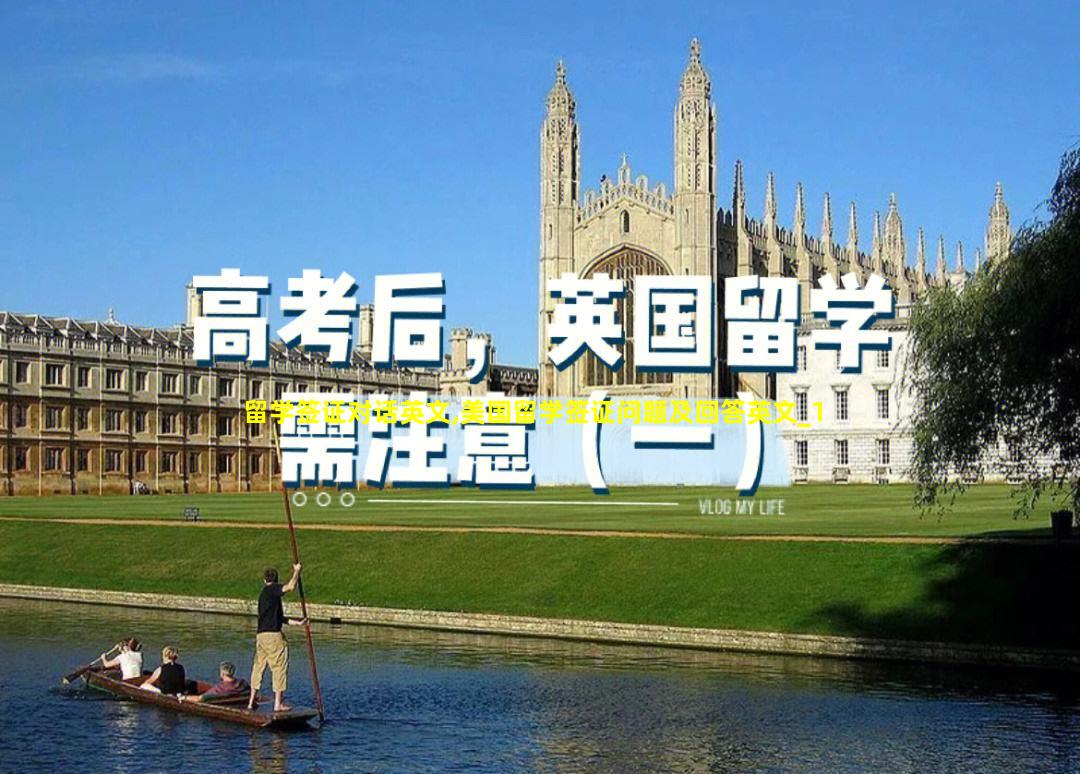 锦泰留学网
锦泰留学网A: Hi, I heard you're applying for a student visa. Is that true?
B: Yes, that's right. I'm planning to study abroad next year.
A: That's exciting! Which country are you considering?
B: I'm leaning towards the United States or Canada.
A: Great choices! Do you already have a university or college in mind?
B: I've narrowed it down to a few options, but I haven't made a final decision yet.
A: That's understandable. Have you started the visa application process?
B: Yes, I have. I've gathered all the required documents and filled out the application form.
A: That's a good start. Remember to double-check everything before submitting it. Any specific concerns about the visa process?
B: I'm a bit worried about the financial aspect. I need to prove that I have enough funds to support myself during my studies.
A: That's an important requirement. Make sure you have all the necessary financial documents, such as bank statements and sponsorship letters, to prove your financial capability.
B: Will do. I'm also concerned about the interview part of the visa process.
A: Don't worry too much about it. Just be prepared to answer questions about your study plans, why you want to go to a particular country, and how you plan to finance your education.
B: Okay, thanks for the advice. Did you have any trouble with your own student visa application?
A: Fortunately, mine went smoothly. I did a lot of research beforehand and made sure to follow all the guidelines. It's all about being well-prepared.
B: That's reassuring to hear. I'll make sure to do my due diligence. Thanks for your help!
A: No problem. If you have any more questions or need any assistance during the process, feel free to reach out. Good luck with your visa application!
"US Study Visa Problems and Answers"

Q: How can I apply for a US study visa?
A: To apply for a US study visa, you need to complete the Form DS-160, pay the visa application fee, schedule an appointment at the nearest US embassy or consulate, attend an interview, and provide all the required documents.
Q: What documents do I need to provide for a US study visa application?
A: You will need to provide your passport, a passport-sized photograph, Form DS-160 confirmation page, visa application fee payment receipt, SEVIS Fee payment receipt, I-20 or DS-2019 form issued by your US school, academic transcripts, standardized test scores (if applicable), financial documents to prove your ability to cover tuition and living expenses, and any other supporting documents requested by the embassy or consulate.

Q: How long does the US study visa application process take?
A: The processing time for a US study visa can vary, but it typically takes several weeks to a few months. It is recommended to apply well in advance to allow enough time for processing.
Q: What are the requirements for a US study visa interview?
A: During the US study visa interview, you will be asked questions about your intended course of study, your academic background, your financial ability to support yourself, and your ties to your home country. It is important to be prepared, provide honest answers, and bring all necessary documentation.
Q: Can I work while studying in the US with a study visa?
A: Yes, international students in the US on an F-1 visa are eligible to work on-campus for up to 20 hours per week during the academic year and full-time during school breaks. However, off-campus employment may require additional authorization from the US Citizenship and Immigration Services (USCIS).
Q: What should I do if my study visa application is denied?
A: If your study visa application is denied, you can ask for an explanation regarding the reasons for the denial. You may also have the option to reapply or appeal the decision. It is recommended to consult with an immigration attorney for guidance on the next steps.
Q: Can I extend my US study visa?
A: Yes, it is possible to extend a US study visa in certain circumstances. You should consult with your designated school official (DSO) to discuss the requirements and process for extending your visa.
Q: Can I bring my dependents with me on my US study visa?
A: Generally, F-1 visa holders are not allowed to bring dependents with them. However, if you are pursuing a higher-level degree program, you may be eligible to bring your spouse and/or children on an F-2 dependent visa. You will need to provide the necessary documentation to prove your relationship and their financial support.
Please note that the information provided here is for general guidance and it is always recommended to consult official sources and immigration professionals for the most accurate and up-to-date information on US study visa requirements and processes.
申请美国留学签证时,一般会使用英文进行沟通和填写申请表格。大部分使领馆官员也会使用英文进行面试和询问问题。如果你在沟通过程中遇到难以理解的问题,你可以要求使用中文进行交流。一些使馆也会提供中文翻译的服务,但请注意,这并不保证所有使馆都提供此项服务。所以在申请签证时,熟悉一些基本的英语词汇和表达是很有帮助的。
The English translation for "留学签证" is "study visa".